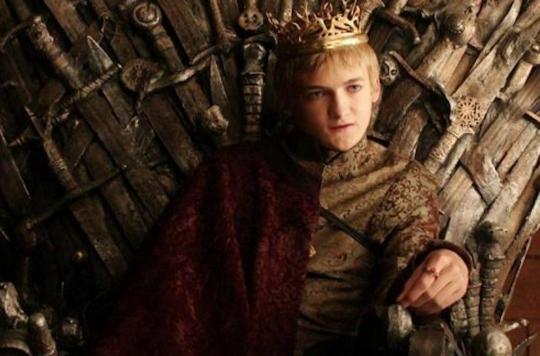Whether we rejoice in the death of a hateful villain (Joffrey Baratheon, we think of you) or they surprise us, the deaths of characters who have a dark role in a fiction are memorable because they mark important moments. in the story.

- The villains of cinematographic works are “pleasant” characters to see die.
- If some are pleasing, most are more “meaningful”, because they mark a break in the story, than “pleasant”, because there is, despite everything, an attachment to the character.
We love to hate villains in fiction. Whether it’s beings without any morals like Joffrey Baratheon in Game Of Thronesor heroes who lost themselves in their ideals like Anakin Skywalker who became Darth Vader in Star Wars, it’s fun to hate them and then see them die. However, in a study carried out by researchers at the State University of Ohio (USA), it would seem that the deaths of fictional characters are perceived more as “meaningful” than those considered “pleasant”. The study was published in the journal Omega-Journal of Death and Dying.
Memorable deaths
For this study, the researchers recruited 506 participants online who were divided into three groups. The first was invited to reflect on a death scene based on a story he considered particularly significant. In the second, the participants had to think of a death that they found pleasant. Finally, the third group simply had to think of a death scene from a story.
The first lesson of this study is that almost all of the death scenes chosen by the groups come from films or series, thus showing the predominance of “visual” deaths. However, a few scenes were also taken from video games or comics.
Following their choices, participants were asked about their emotional reactions to the death scenes, about the appreciation and pleasure they derived from these scenes, and about their perceptions of the dead characters. As expected, people who were asked to remember the death of a character they found particularly likable tended to pick a villain, like Joffrey Baratheon from Game Of Thrones.
In contrast, when asked to remember meaningful deaths, participants tended to choose sympathetic characters, but not necessarily those who were always heroes. This is the case, for example, of Severus Snape in Harry Potter or Walter White in breaking Bad.
The meaning of a character’s death
“We remember the dead that made us cry and think more than those that made us happysays Matthew Grizzard, co-author of the study and assistant professor of communication at Ohio State University. It seems that when we remember death, even in the relatively inconsequential spaces of media entertainment, we experience it as a meaningful and reflective experience.. When asked to think of meaningful deaths, many people chose characters who experienced some sort of redemption. For example, Roy Batty, who was the antagonist in most movies Blade Runner, but who ultimately has this redemptive action.”
However, not all cinematographic works have the same potential to please viewers. Thus, dramas and horror films are more often associated with significant character death. What’s remarkable according to Matthew Grizzard is that participants who were asked to remember a character death most often gave names of “meaningful” deaths, rather than those that were “pleasant”.
“People remembered deaths that were meaningful, moving, and thought-provoking. This further confirms that people don’t consume fiction just for fun.performer Matthew Grizzard. Film and art in general can expose us to these experiences that we may not want to have, but we know we will one day. It can help us learn what that experience will be like.”

















